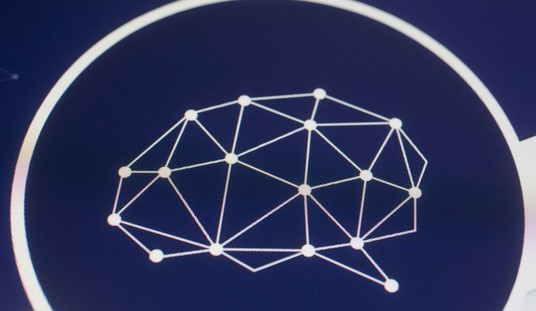Unfortunately or not, Kamala Harris' speech on the Ellipse is happening too late for me to cover it today.
In most ways, that is a good thing. People will have time to clip it, pundits time to analyze it, and I will be able to have a good drink before I have to think too deeply about it. I expect that it will be a "B"-level speech, as her teleprompted speeches tend to be. No word salads, carefully crafted phrases, plenty of veiled and not-so-veiled attacks on you, me, and Donald Trump, and cable news analysts declaring Harris the next Pericles.
I'll leave that to tomorrow.
Instead, I want to direct your attention to a new piece in City Journal, which is an intellectual's lament about and analysis of where things stand in The West today. I do not fully endorse the analysis, but Martin Gurri does a good job making the case that we are entering what he calls "The Endarkenment."
"The Enlightenment’s dismissal of the rabble is simply no longer viable. The deplorables, with all their anger, must somehow be brought inside the tent."@mgurri in @CityJournal https://t.co/S3fuFJ5PAm
— The Ivy Exile (@TheIvyExile) October 29, 2024
The Endarkenment is the natural end of the Enlightenment, which sparked the creation of the modern world. Whether you identify its roots in the Renaissance or sometime after Descartes, Machiavelli, and Francis Bacon redefined human existence by focusing on the wholly rational and material (Descartes, at least, left some room for the immaterial) doesn't matter. Traditionally the Enlightenment is traced to the 18th Century, where you saw the blossoming of modern science, the focus on individual rights, and the decline of Christianity and its replacement by Science as an ideal.
The Endarkenment is, unfortunately, the natural endpoint for the Enlightenment project, although nobody could see it at the time. As a child of and fan of Enlightenment values, it saddens me to say so, but already in Rousseau, the Encyclopedists in France, and later Marx and Nietzsche, you could see the great infirmity in Enlightenment thinking: it necessitated what Nietzsche called the death of God, and hence external meaning for human beings.
Asked whether she could provide a definition of the word “woman,” Ketanji Brown Jackson, Supreme Court nominee, magna cum laude at Harvard and graduate of Harvard Law, seemed perplexed: “I’m not a biologist,” she observed. Yet we are told by Jeremi Carswell, a specialist in the field, that children know perfectly well which of many genders they wish to grow up to be “from the moment that they have any ability to express themselves.”
During the 2020 pandemic, because of safety concerns, San Francisco took draconian measures to keep adults apart and children out of school, even as it promoted and protected the use of dangerous drugs by a large homeless population. That year, 257 San Franciscans died from the virus, while the number of overdose deaths climbed to 697.
In May 2024, former president Donald Trump was convicted in a Manhattan courtroom of a crime most Americans would be hard-pressed to describe. Three months earlier, a special prosecutor found that Joe Biden had mishandled classified documents but refused to bring charges because the sitting president of the United States was “an elderly man with a poor memory.”
These recent episodes are symptoms of a mass decline in America into unreason—bordering, at times, on a psychotic breakdown. Strange fantasies have overwhelmed reality: it’s an age of delusion, impossible longings, and ritual self-mutilation. The causes are many and complex, but the syndrome deserves a name. I’m going to call it the “Endarkenment” because it rises, like an accusing specter, out of the corpse of the fallen Enlightenment.
The Endarkenment is the pathological disorientation that convulses a society after it has extinguished all sources of meaning and lost sight of all paths to a happier future. It’s the triumph of wish over facts, the infantilization of top echelons of the social pyramid—of hyper-credentialed, globally mobile people, wielders of power and wealth and media, who, on a routine basis, confuse their self-important imaginings with the world itself. It’s the widespread descent of everyone else, now deprived of teachers, preachers, and role models, into a cognitive underclass, prone to the most bizarre theories about how things work.
At the root of the Endarkenment is the search for meaning in a world stripped of it. As hyperrationalism rejected the Divine and replaced it with sheer materialism, the purpose of life became pleasure and self-realization.
America became the most prosperous and powerful country in the world, I would argue, because we were simultaneously the best exemplar of Enlightenment values and also the most religious country in The West. Religion hung on here in America longer than anywhere in Western Europe, and a sense of higher purpose still drove America. We went to the moon--an achievement of scientific rationalism, and when we got there, our astronauts read Genesis.Oh, so long ago that was. These days one has to wonder what pronouns the astronauts prefer.
From the pinnacle of government to the youngest generation—the Zoomers—the same existential confusion prevails. Materially, the Zoomers are a privileged cohort. They benefit from more education and higher income than preceding generations. Emotionally and spiritually, however, their lives are parched of meaning and oppressed by fear of the dark. According to social psychologist Jonathan Haidt, Zoomers suffer from unprecedented levels of anxiety, depression, and suicide. Haidt blames the cell phone and social media. I would add: and the emptiness, too—the lack of anything else. The digital world, with its subjectivist distortions, has become God and religion for the Zoomers, their source of identity and measure of self-worth. It’s a generation imprisoned in a house of mirrors.
Fevered attempts to break out have only led deeper into the maze. Young gays and transsexuals, for example, have been, after the October 7 terrorist massacres in Israel, among the fiercest defenders of Hamas—an Islamist movement that condemns their behavior as a capital crime. “Be grateful that I’m not just going out and murdering Zionists,” warned a Zoomer of uncertain gender at Columbia University’s anti-Israel protests. That chilling mix of self-righteousness and verbal threat is the starting point of Endarkenment politics.
We live in a world where there is no difference between imagination and reality. You and I may see men and women because, well, we come into the world that way and our basic identities are determined by forces outside our control. Like it or not, you are male or female, have certain genetic traits, and live in a world where physical laws rule.
In the world of the Endarkenment, a Supreme Court Justice cannot define a term as simple as "woman." People even get to determine their species, not because their species really changes, but because reality is a thing of the mind and the will alone.
People often point to Nietzsche as the evil man who started us on this path, but that is in my view a mistake (I was going to write my dissertation on Nietzsche). Nietzsche lamented the evaporation of meaning and the death of God; he simply diagnosed a reality that was emerging out of the triumph of materialism. Dostoyevsky saw the same phenomenon and expressed it in his very Russian way, but in many ways they saw the same thing, just as Kafka saw into the soul of the materialist, faceless world.
Totalitarian movements in the 20th century were one response to the perceived meaninglessness of the world; the transnationalist response is a technocracy in which meaning is determined by the benevolent tyrants in Brussels and Washington. One version is the hard totalitarian version, the other is soft totalitarianism. Both are the Endarkenment.
In my view, it was Kant who first exposed the essential emptiness of the scientific project. Don't get me wrong: science is GREAT! I love it. But without some version of the Divine attached to it, it corrodes all meaning from life. What makes a life worth living is meaning, not sybaritic pleasure-seeking, but without the Divine most human beings become sybarites. Go to a Pride parade and see what I mean, or watch the Harris campaign go after the porn vote.
On the @LeBatardShow, host tells Walz: "I think you may have swayed down-the-middle Chris here...the porn thing!"
— Mary Margaret Olohan (@MaryMargOlohan) October 29, 2024
"I'm pro-porn," grins Chris.
"Hey you do what you do," Walz tells porn-lover Chris. "You be you, is my thought." pic.twitter.com/a9XnngdcEF
There actually is a Harris-aligned PAC advertising the importance of masturbation to pornography in American politics. If you want to pleasure yourself to porn, have at it as long as it is legal. But really, this is where we are in deciding the leader of the free world?
Yes. Yes, we are. If God is dead, what else is there?
Criticism was unrelenting because the gaze of science is total: no exceptions are tolerated, no waivers issued for angels in the great beyond. The Old World was enchanted. Meaning flowed from heaven to earth. Social structures reinforced the linkage: religion, class, guild, family, village, and neighborhood—all inserted the individual into communal arrangements rich in memory and certainty. But these were precisely the bastions of conservatism that liberal thinkers and statesmen undertook to tear down. By the mid-nineteenth century, the disruption of traditional forms had attained escape velocity. Listen to Marx in 1848: “All fixed, fast-frozen relations, with their train of ancient and venerable prejudices and opinions, are swept away, all new-formed ones become antiquated before they can ossify. All that is solid melts into air, all that is holy is profaned.”
Liberalism sought to solve the problem of meaning by privatizing it. Individuals were free to believe whatever they wished, so long as it remained within the law. But this could only be a provisional expedient. The massive weight of the culture pressed against traditional sources of shared meaning, grinding them down. One was free to believe that the sun orbited the earth, but not if one wished to be taken seriously. The same became true of Christianity and religion in general. To be enlightened—or “modern”—came to mean disenchantment, skepticism, the impossibility of settled belief. Marx’s “fast-frozen relations” had aroused powerful feelings of belonging; for these, liberalism substituted the cold scalpel of the statistician and the bureaucrat.
Having severed all connection to the absolute, the entire project seemed to hang, magically, in midair. Liberalism made claims to universality—but on what basis? Most liberal ideals, like humanism, were secularized versions of Christian virtues—how could they survive the repudiation of the original? As Darwinian organisms in an indifferent universe, what, other than discredited custom, stood in the way of a “revaluation of all values” that would exalt the superior predator—the “blond beast”? Such questions, central to those like Marx and Nietzsche, who detested the system, somehow wound up elided in the mainstream of liberal thought. We look in vain in the many pages of John Stuart Mill for a moment of anguish over the matter. A curious lack of self-awareness clouded the critical enterprise.
The descent into solipsism was inevitable once we discarded God from the core of our society. This is, of course, not proof of the existence of God, but sure is proof that the lack of belief in God leads people to very dark places. That is why Richard Dawkins, an avowed atheist, is appalled at the descent of the West into a muddled mass of pleasure seekers helpless to defend itself against barbarians whose sense of meaning--however twisted--is rooted in the Divine.
Bizarre from Dawkins, who wrote a book called ‘The God Delusion’ claiming religion was a deeply malevolent, dividing force in the world.
— Aaron Bastani (@AaronBastani) March 31, 2024
Now he’s calling himself a ‘cultural Christian’? Find it odd to use religion to extend your secular political points. pic.twitter.com/EU8LkXULom
Unlike Bastani (the tweet's author above), I don't find Dawkins' reaching back to Christian values bizarre. He recognizes that all that made the West truly great--our art, our literature, our embrace of human rights, and our striving to build a better world--was rooted in Christianity. Without Christianity, the West is a spiritual void in which great technology is used to create high-tech sex toys that get reviewed in the New York Times.
The advance of liberalism sparked ferocious opposition. The pushback came less from conservatism, whose “long withdrawing roar” was scarcely audible in history, than from rival ideologies that were just as totalizing, but offered what liberalism couldn’t: social cohesion and a shared belief system. Two world wars and a “cold” war, adding up to hundreds of millions dead, settled the question. Liberalism triumphed over its external rivals (fascism, Nazism, Marxism-Leninism), even as it completed the decomposition of internal sources of meaning (religion, community, family). The world was demystified. Social relations were stripped of all transcendental trappings. The purpose of human life was understood to be the reproduction of selfish genes. The universe, preached evolutionary scientist Richard Dawkins, had “no design, no purpose, no evil and no good, nothing but pointless indifference.”
In such a bleak landscape, the ideals that had stood as guideposts to behavior withered. Liberal politics degenerated into the will to power. The pursuit of happiness was reduced to a frantic grab for pleasure—but pleasure devoid of happiness is a tedious and insipid goal. The last surviving values were said to be reason and science—but why should they be privileged? At some point in the twenty-first century, the critical eye turned inward; the Enlightenment began to devour itself.
There is much more, but you should go read the piece yourself if you are so inclined. It is the sort of piece I would have had my students read back when I taught political philosophy, not because I agree with it 100%, but because it is a great starting point for a conversation that gets to the heart of our cultural decline.
The Endarkenment is real, and it is not clear how to slow it down or reverse it. Personally I think Elon Musk is on the right track--move humanity forward by moving it outward. Create a goal and put all society's resources into it.
Individuals can look inward and look for the spark of the Divine and pass it along to others, but don't expect a massive revival of Christianity on a societal scale any time soon. Perhaps if we truly enter a Dark Age it would be possible, but in our current society religion is a declining force and not an expanding one.
We have to meet people where they are, and finding a goal we can all get behind is a good place to start. Having babies and going to Mars seem like good goals.








Join the conversation as a VIP Member